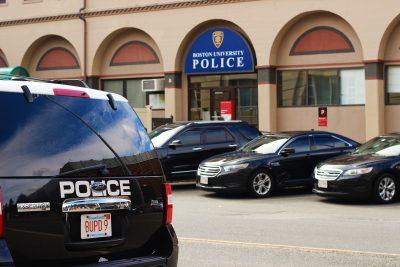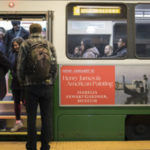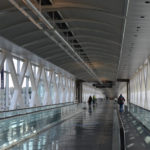
A Boston University employee reported to university police on Jan. 17 that she found a printout at 225 Bay State Road, which contains anti-Semitic propaganda.
“The letter head on the print outs ‘samiz.dat’ was bracketed by two swastikas,” according to BU Police Department’s crime log regarding this incident. “The information on the print outs made reference to the Jews killing of Christ.”
This is among eight similar reports university police received from Jan. 17 to 18. The printouts were found at various locations across campus.
BUPD Acting Chief Scott Paré said these incidents are not unique to BU.
“It’s going on throughout the country,” Paré said. “There was no real direct threat to any particular BU employee.”
Paré said these messages could have been sent to BU printers from a remote location.
“[The people sending these messages] search for the IP addresses, and some of these IP addresses … are open networks so somebody can send something to a printer or to a fax machine,” Paré said.
He explained that BU was not targeted directly, but was rather involved as part of a larger attack.
“It’s almost like the old phone scams where they just dial a bunch of different numbers, and they send some type of message through,” Paré said. “They run a series of different IP numbers and if they find it works, off the message goes. So it seems like it’s almost automated.”
Paré said BUPD is not working alone in handling the issue.
“We notify the Boston Regional Intelligence Center as well as state police that we receive these,” Paré said. “They send it over to a central depository for getting information so that if other universities in the area are getting these, we know about it.”
Samantha West, a sophomore in the College of Fine Arts, said she thinks there should be further security measures put in place.
“That makes me afraid for the security of our computer systems because I don’t think that should be possible,” West said. “There should certainly be an investigation about who was the perpetrator doing this.”
Paré encouraged students and faculty to report any suspicious printouts they find to BUPD, which will assist the university police’s effort to stop these incidents.
“[Information Services and Technology] have to go to each machine and put some sort of block on it,” Paré said. “We want people to call so we know the machine is susceptible to this.”
BU Information Security Director Eric Jacobsen said there are multiple levels on which the security of the printing systems can be increased.
“We have taken additional steps to more comprehensively protect the identified printers in response to this incident by making changes both at the local printers and in some cases at our campus firewall,” Jacobsen said.
In addition, Jacobsen said the incident had nothing to do with the new printing system BU implemented in January. There is also no reason to believe these messages came from someone at BU, he added.
“We do not have any indication of the identity of the person initiating the print job or that they have any connection to Boston University,” Jacobsen said.
He said the printers’ accessible design probably contributed to their susceptibility.
“The printout appears to have originated from the internet and took advantage of the fact that printers are designed to be easy to use and support a wide variety of ways to submit print jobs” Jacobsen said. “The printers worked as their manufacturers intended.”
Several students said they were shocked to hear about these reports.
Elsa Herri, a freshman in the College of Arts and Sciences, said she thinks the issue goes deeper than a few printouts.
“It’s insane to me the kind of behavior that the current climate has brought about that makes it look like it’s OK when it’s really not,” Herri said. “Yes, you can punish those individual people, but I think it’s a much bigger problem that has to be tackled.”
Sophia Abeles, a freshman in CAS, said that as upsetting as the printouts are, BU isn’t to blame.
“It’s sad to think that at a school like BU where it’s so diverse and so accepting of all religions and cultures that something like that would happen” Abeles said. “I think [BU administration] does a really good job at just spreading universal love and love of other cultures.”




